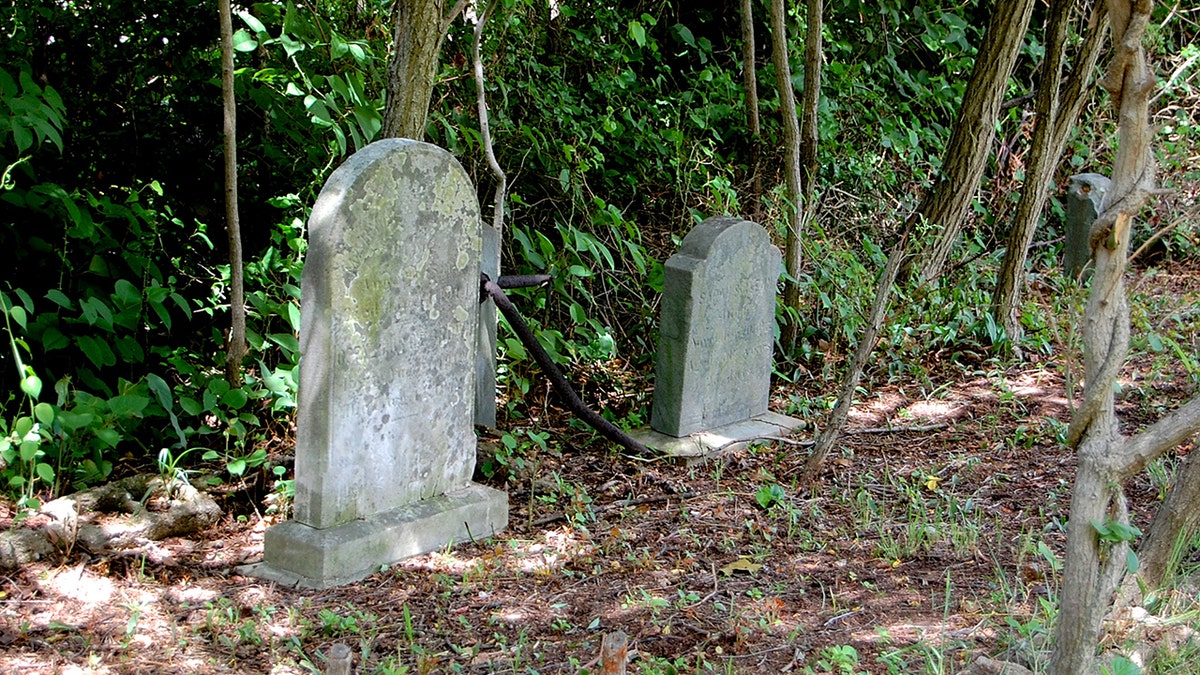
A new bill has been introduced in Congress that would preserve and document in a nationwide database the discovery of lost African-American burial sites (Glen Umberger/New York Landmarks Conservancy via AP)
New legislation proposed to Congress last week would protect lost African-American burial grounds, and green-light the creation of a database for tracking the historic areas.
Burial sites with the remains of enslaved or segregated African-Americans over the last few centuries are often uncovered during new construction nationwide, because they are not registered with state or local departments, according to Forbes. The new legislation, proposed on Wednesday by Congressman A. Donald McEachin, who represents Virginia's 4th District, and Congresswoman Alma Adams, of North Carolina's 12th District, would protect historic burial sites discovered as a part of the National Parks Service.
In addition to being registered with the NPS, the bill would also establish a federal nationwide database to record information about the spaces, as well as provide information for communities surrounding the burial grounds and secure funding for further research.
The bill intends to “help communities identify and record burial grounds and preserve local history while better informing development decisions and community planning."
African-American burial sites have been steadily discovered for decades, but there has not been a nationwide initiative to centralize the information about them. Many of the graves remain unmarked and the grounds unannounced, leaving countless African-Americans in modern society without any information about where there ancestors' remains lie.
In 1991, the largest reclaimed African-American burial site was discovered in New York. It is believed to be home to the graves of 15,000 slaves. About 419 sets of remains were found there, and the site has since been renamed and memorialized as the African Burial Ground in Lower Manhattan.
LOST CITY IN SOUTH AFRICA REVEALED IN STUNNING DIGITAL IMAGES
More recently in New York, another African burial site was discovered in the East Harlem neighborhood in 2016. Local residents had reportedly claimed for many years that there were pre-Civil War remains underneath the 126th Street Bus Depot, and it was later revealed to be a former Dutch Reformed churchyard where black people were buried between the 17th and 19th centuries. Archaeologists discovered more than 140 bones and bone fragments, including an intact skull, acording to the Atlanta Black Star.
In Texas, the remains of 95 African-Americans were discovered at a construction site where a new school was being built about 20 miles from Houston in December. They had all been buried in pine boxes between the years of 1878 and 1911. Archaeologists also reportedly found chains near the unmarked graves. The individuals were thought to have been forced to work on sugar plantations long after slavery ended through a program called convict leasing, in which prisoners were "leased out" to provide manual labor.
CLICK HERE FOR THE FOX NEWS APP
The new bill would allow the creation of the African American Burial Grounds Network, so that graveyards like those found in New York and Texas could be researched, documented and preserved.









































